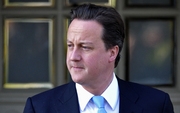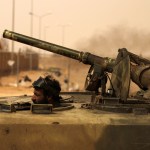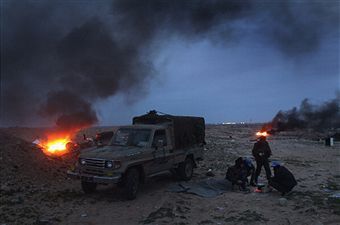The way to cease fire
Colonel Ghadaffi wants a cease fire. Fine, but Western governments should insist that the no-fly zone still comes into force; that a new UN resolution is drafted to specify cantoment areas for his forces; and that a UN-mandated Arab Leage but NATO-enabled interpositional force is deployed to ensure the ceasefire holds, perhaps with an Egyptian officer as the head working in tandem with the UN and EU envoys to kickstart a political process. Finally, the West should lend massive support to the “free republic” of Benghazi – economic, military and so on. That is the kind of ceasefire the West can accept. Not a ploy that aims to pick the














